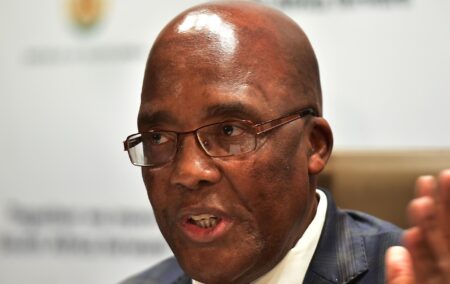Middle class South Africans who contribute nearly 60% of all personal income tax would be among the first to consider emigrating if their health-care options were reduced to intolerable levels by the introduction of the National Health Insurance (NHI) scheme.
So warns the Institute of Race Relations (IRR).
In a statement, the IRR notes that health minister Aaron Motsoaledi “is adamant that the National Health Insurance system must be imposed at any cost. He has emphasised that private medical aids in their current form must be scrapped and that no price is too high for NHI – including collapsing the Government of National Unity of which he is a member”.
The IRR adds: “There is a further cost to the county of which the minister should be made aware. There are only around 862,000 individual taxpayers in South Africa whose annual income exceeds R750,000, according to Treasury estimates for 2024/25. This small group of people contributes 58.6% of all personal income tax, or 23.2% of all the taxes the government expects to collect, the gross tax revenue.[1]
“It is safe to assume that practically all of these taxpayers have private medical insurance. If any group in South Africa has the choice of emigrating when confronted with intolerable government policy, it is this group. They have the skills, work experience, connections and money to leave the country.
“Threatening this group with taking away their access to private health care places at risk almost a quarter of all the taxes the state takes in a year. If these taxpayers leave, the state will no longer collect enough revenue to maintain current spending on social grants and civil servant wages, never mind money for infrastructure investment in water, electricity, and transport.
“This is without taking into account the unknown billions the system will cost to implement, the untold corruption it will enable, the exodus of health-care professionals it will trigger, or the devastation the evisceration of South Africa’s world-class private health care will wreak on the wellbeing of South Africa’s people.”
Moreover, the IRR says the NHI “poses a similar threat to corporate income tax”.
“In the 2021 tax year – the latest for which breakdown data are available – there were only 842 companies in South Africa with an income over R100 million. They contributed 72.4% of all corporate income tax, or 13.2% of the total tax take.[2] It is safe to assume that almost the entirety of their mid- to higher-level staff will have private medical insurance. If they emigrate because they do not want to be deprived of the ability to choose their health care, corporate profits will plummet – as will tax revenue.”
In view of these risks, the IRR reiterates its call to the minister to step away from NHI, fix public health care, and make quality private health care accessible to more South Africans.
The IRR argues that that high-quality private health care which South Africans want can be made more widely accessible by:
- Allowing insurers and health-care providers to offer more affordable products, which government regulation currently prohibits them from doing;
- Making payments for private health insurance and health care fully tax deductible; and
- Creating conditions for faster economic growth and rising incomes so more people can afford better care. The IRR’s “Blueprint for Growth” papers, available for free at irr.org.za, give practical advice on how to get the economy growing.
“Mr Motsoaledi’s willingness to place in jeopardy the future of the Government of National Unity in pursuit of an unworkable system is reckless and ill advised. The IRR will write to the minister urging him to take seriously the warnings and constructive criticism he has received from health-care professionals, industry associations, civil society organisations and business groupings.”


